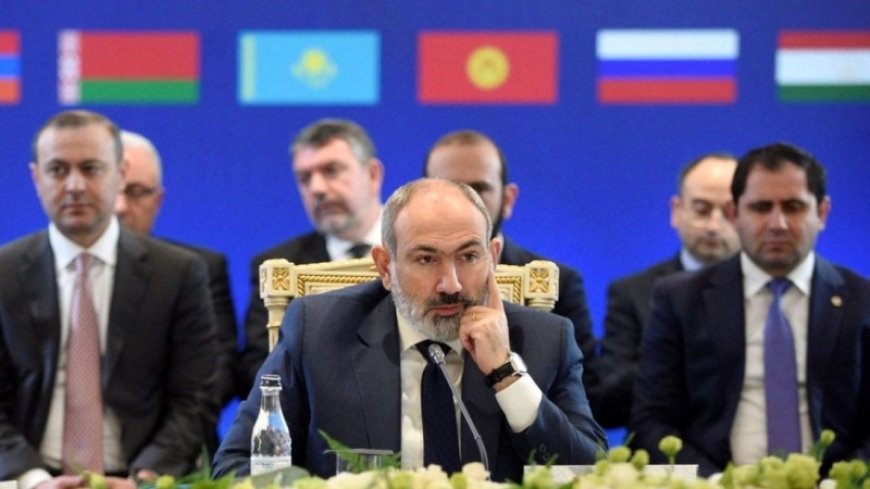Armenia reaches the "point of no return"
On July 12, Armenian Prime Minister Nikol Pashinyan confirmed that Armenia plans to withdraw from the Collective Security Treaty Organization (CSTO). This confirmation took place after the agreement on the withdrawal of Russian border guards from Armenia.

On July 12, Armenian Prime Minister Nikol Pashinyan confirmed that Armenia plans to withdraw from the Collective Security Treaty Organization (CSTO). This confirmation took place after the agreement on the withdrawal of Russian border guards from Armenia.
Yerevan's next step after leaving the CSTO is not yet clear. Armenia is the only South Caucasian country that is a member of the Eurasian Economic Union (EEU) led by Russia. If Armenia wants to completely separate from Russia, it will have many obstacles for economic independence.
It seems that Pashinyan's government is trying to end Armenia's geopolitical and economic isolation by normalizing relations with Azerbaijan and Turkey. From the Pashinyan government's point of view, this arrangement could allow Armenia to reduce its economic dependence on Russia by creating transit and energy transfer routes with Turkey and Azerbaijan, as well as opportunities for joint economic projects with the two countries. In this situation, the gas imported from Azerbaijan and Iran can replace a part of the Russian gas exported to Armenia.
Pashinyan still has to overcome domestic political challenges to officially withdraw from the Collective Security Treaty Organization. However, in case of success, it is not clear which partner Yerevan will turn to instead of Russia.
Iran can be a reliable and stable alternative for Armenia. Tehran, however, considers the weakening of Armenia's relations with Russia and possible withdrawal from the CSTO as undesirable, because such actions can contribute to the increase of the influence of the West and NATO in the South Caucasus. These changes will dramatically change the balance of power in the South Caucasus to the detriment of Iran and Russia and to the benefit of Azerbaijan, Turkey and the West.
In this situation, if Armenia leaves CSTO, Iran will try to maintain close relations with its only Christian neighbor. Maintaining the 40-km (25-mile) border with Armenia is a strategic priority for Iran, and Tehran's outspoken opposition to the Zangezur Corridor in recent years is a prime example of this. During the last three decades, Russian border guards were responsible for the security of this border. If these forces leave Armenia, Iran prefers that they are not replaced by other foreign forces, and that Armenian border guards are deployed on this border.
Armenia's strategic departure from Russia means a change in geopolitical position, and thus Armenia seeks greater autonomy, and cooperation and alignment with regional powers and the West. Yerevan's decision to withdraw from the Collective Security Treaty, if implemented, is a paradigm shift not only for this country, but also for the South Caucasus. This could fundamentally change the composition of political forces and the balance of power in the region, potentially reducing Russian influence while strengthening the role of Azerbaijan, Turkey and the West.













































